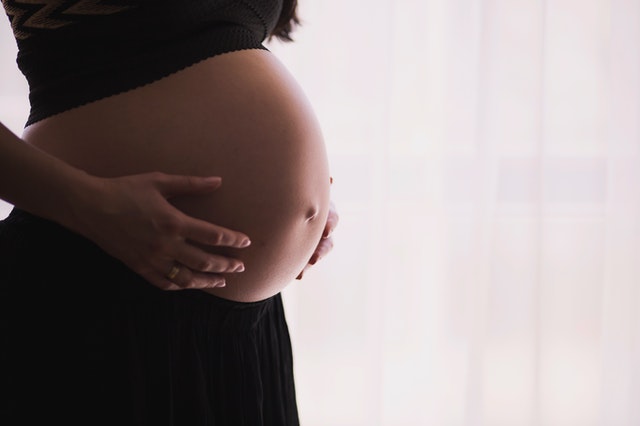The most exciting and unusual thing that can happen in your life is pregnancy. While every woman is unique, pregnancy can be overwhelming. This is how your pregnancy will look week by week.
Pregnancy is one of the most unusual and thrilling things that will ever happen in your life. And while pregnancy is different for every woman, if it’s your first time carrying a baby, you want to be prepared for the various aspects of pregnancy. Here is your pregnancy explained week by week!
1. First Trimester
Typically, a pregnancy lasts 40 weeks. For the convenience of the expectant mothers and the medical professionals taking care of them, pregnancy is divided into three periods called a trimester. The first trimester includes weeks 1 to 13. Here is what will be happening to you and your body:
- Week 1 and 2: you are not actually pregnant at this point and your body is only preparing for the conception. Keep your stress levels low and your diet healthy.
- Week 3: by the end of week 3, the egg has been fertilized and is now implanting in your uterus. Mild cramps and light vaginal bleeding are normal at this stage.
- Week 4: if you are actively trying to conceive, by now you will probably notice those early pregnancy symptoms and will do a home test to find out whether you are pregnant.
- Week 5: this week introduces most pregnant women to exhaustion, breast tenderness, and nausea.
- Week 6: starting from this time, you may begin experiencing morning sickness, although it may not be as severe right now.
- Week 7: by week 7, your morning sickness is in full force, which may prevent you from doing your usual morning routine or work.
- Week 8: 8 weeks of pregnancy is a good time to first visit the doctor who will monitor you until you give birth.
- Week 9: your uterus begins growing to accommodate your baby, but you won’t have any baby bump yet.
- Week 10: by this point, your doctor may take your blood and urine samples to confirm everything is going as it should.
- Week 11: many women get their first ultrasound on week 11 to see whether the pregnancy is developing as planned.
- Week 12: if you have lighter skin, you may start noticing dark pigmentation on your face and neck area. This skin discolouration is perfectly normal and should disappear once you give birth.
- Week 13: you may not be showing yet in your baby bump area, but your breasts are noticeably larger and still very tender.
SEE ALSO ➟ Ways To Get Pregnant Without Se3 Or A Man
2. Second Trimester
During the second trimester, numerous important pregnancy processes take place and you will begin to notice more and more symptoms signaling you are about to become a mother. During weeks 14 to 26, you may experience the following things:
- Week 14: you may want to start wearing looser clothes or special maternity clothing items to feel more comfortable.
- Week 15: your doctor may suggest a genetic test to rule out any genetic conditions that may complicate the pregnancy and the baby’s life after birth.
- Week 16: if the results are not clear, an amniocentesis procedure may also be required.
- Week 17: by now, many pregnant women are already feeling their baby kick, even when it’s very subtle at first.
- Week 18: at this point, most women already have a baby bump that is noticeable not only to themselves and their loved ones but also to strangers.
- Week 19: you may experience a runny or stuffy nose even when you are not sick or suffering from known allergies.
- Week 20: at this stage of the pregnancy, a second ultrasound may be scheduled and you can even find out the baby’s sex if you want to.
- Week 21: This is a time when you first may start experiencing Braxton Hicks contractions that prepare your body for the process of giving birth.
- Week 22: you may want to begin planning your birth procedure and finding a doctor who will assist you in the process.
- Week 23: by this time, you may experience trouble sleeping due to leg cramps. A special pregnancy pillow may help you sleep better.
- Week 24: you may start noticing your body developing stretch marks around the belly, thighs, and breasts.
- Week 25: you probably need to visit the toilet more and more often, even during the night, which also doesn’t help with a healthy sleeping schedule.
- Week 26: constipation is absolutely normal at this stage of the pregnancy and you can try some natural methods to alleviate this condition.
- 3. Third Trimester
- The third trimester may be the hardest one in pregnancy, but it also brings you closer and closer to becoming a mother. Here is what you can expect on weeks 27 to 40 of your pregnancy:
- Week 27: by now, your baby should move around more, which is a wonderful feeling but can also be painful sometimes.
- Week 28: as your uterus grows to support the baby’s growth, you may experience constant back pain. A maternity belt and some mild exercise may help with the discomfort.
- Week 29: at this stage, one of the most dreaded pregnancy symptoms, haemorrhoids, may occur. It’s best to consult a doctor right away to avoid serious complications.
- Week 30: you may notice that your footwear no longer fits you. This may happen due to swollen feet, as well as your foot size growing permanently during pregnancy.
- Week 31: your breasts may start leaking yellow liquid, which is called colostrum and is very important as your baby’s first-ever food.
- Week 32: the area around your nipples and the nipples themselves may become darker and should go back to their natural colour once the pregnancy is over.
- Week 33: your body produces a lot more blood than usual, but it is hardly noticeable.
- Week 34: exhaustion is perfectly normal at this stage of the pregnancy and it’s best to stop working completely and rest more whenever possible.
- Week 35: you may experience shortness of breath due to your uterus becoming even bigger and pressing against other organs, including the lungs.
- Week 36: the baby starts descending into your pelvis to prepare for birth, which may cause pelvic discomfort.
- Week 37: you may notice your body discharge the mucus plug which has guarded your cervix throughout the pregnancy. At this stage, you are one step closer to birth.
- Week 38: the swelling may get worse, but if your blood pressure is normal, it should be nothing to worry about.
- Week 39: the Braxton Hicks contractions, which you experience throughout pregnancy, may get more noticeable and may signal that labour will begin shortly.
- Week 40: your baby is on its way. If labour doesn’t begin by the end of week 40, medical supervision may be required. There are only moments left until you finally become a mother!
A typical pregnancy lasts for 40 weeks. The term trimester is used to describe the three phases of pregnancy. The first trimester comprises weeks 1-13. This is what you and your body will experience:
READ ALSO ➟ 7 Habits That Could Be Preventing You From Getting Pregnant
- Weeks 1 and 2: You are not pregnant. Your body is preparing for conception. Your stress levels should be low, and your diet should be healthy.
- Week 3: By the end of week 3, your egg had been fertilized. It is now implanting inside your uterus. This stage is normal for mild cramps and light vaginal bleeding.
- Week 4: If you are trying to conceive actively, you will likely notice the early signs of pregnancy and will conduct a home test to determine if you’re pregnant.
- Week 5: This week exposes pregnant women to fatigue, breast tenderness and nausea.
- Week 6: You may feel morning sickness starting at this point, but it might not be as severe.
- Week 7: By week 7, your morning sickness has taken full control, and you may not be able to do your normal morning routine or work.
- Week 8: Week 8 is the best time to visit your doctor. He will keep you in check until you give birth.
- Week 9: Your uterus starts growing to accommodate your baby. However, you won’t yet have a baby bump.
- Week 10: Your doctor will take your urine and blood samples at this stage to verify that everything is working as it should.
- Week 11: Many women have their first ultrasound in week 11, to check if the pregnancy is progressing as expected.
- Week 12: If you have darker skin, you might notice darkening of the neck and face. This is normal and should go away once you have children.
- Week 13: Although your baby bump is not visible yet, your breasts are growing and becoming more tender.
2. Second Trimester
You will notice many signs that you are about to become pregnant during the second trimester. These are some of the things you might experience from weeks 14 through 26.
- Week 14: You may feel more comfortable wearing looser clothing or special maternity clothes.
- Week 15: Your doctor may recommend a genetic test to rule any genetic conditions that could complicate your pregnancy or the baby’s future.
- Week 16: If the results are unclear, an amniocentesis procedure might be necessary.
- Week 17: Many pregnant women feel their baby kick by now, even if it is subtle at first.
- Week 18: Most women have a noticeable baby bump by this time.
- Week 19: You may feel a stuffy or runny nose, even if you’re not ill or have allergies.
- Week 20: At this stage, you may schedule a second ultrasound and can even learn the baby’s sex if desired.
- Week 21: These are the first Braxton Hicks contractions you may experience. They prepare your body to give birth.
- Week 22: You may want to start planning your birth and find a doctor who can help you.
- Week 23: You may have trouble sleeping because of leg cramps. You may be able to sleep better with a special pregnancy pillow.
- Week 24: You may notice stretch marks on your abdomen, breasts, and thighs by week 24.
- Week 25: You will likely need to go to the bathroom more frequently, even at night. This can also affect your ability to sleep well.
- Week 26: Constipation is a normal part of pregnancy at this stage. You can try natural remedies to relieve this condition.
Pregnancy is one of the most unusual and thrilling things that will ever happen in your life. And while pregnancy is different for every woman, if it’s your first time carrying a baby, you want to be prepared for the various aspects of pregnancy. Here is your pregnancy explained week by week!
1. First Trimester
Typically, a pregnancy lasts 40 weeks. For the convenience of the expectant mothers and the medical professionals taking care of them, pregnancy is divided into three periods called a trimester. The first trimester includes weeks 1 to 13. Here is what will be happening to you and your body:
- Week 1 and 2: you are not actually pregnant at this point and your body is only preparing for the conception. Keep your stress levels low and your diet healthy.
- Week 3: by the end of week 3, the egg has been fertilized and is now implanting in your uterus. Mild cramps and light vaginal bleeding are normal at this stage.
- Week 4: if you are actively trying to conceive, by now you will probably notice those early pregnancy symptoms and will do a home test to find out whether you are pregnant.
- Week 5: this week introduces most pregnant women to exhaustion, breast tenderness, and nausea.
- Week 6: starting from this time, you may begin experiencing morning sickness, although it may not be as severe right now.
- Week 7: by week 7, your morning sickness is in full force, which may prevent you from doing your usual morning routine or work.
- Week 8: 8 weeks of pregnancy is a good time to first visit the doctor who will monitor you until you give birth.
- Week 9: your uterus begins growing to accommodate your baby, but you won’t have any baby bump yet.
- Week 10: by this point, your doctor may take your blood and urine samples to confirm everything is going as it should.
- Week 11: many women get their first ultrasound on week 11 to see whether the pregnancy is developing as planned.
- Week 12: if you have lighter skin, you may start noticing dark pigmentation on your face and neck area. This skin discolouration is perfectly normal and should disappear once you give birth.
- Week 13: you may not be showing yet in your baby bump area, but your breasts are noticeably larger and still very tender.
2. Second Trimester
During the second trimester, numerous important pregnancy processes take place and you will begin to notice more and more symptoms signaling you are about to become a mother. During weeks 14 to 26, you may experience the following things:
- Week 14: you may want to start wearing looser clothes or special maternity clothing items to feel more comfortable.
- Week 15: your doctor may suggest a genetic test to rule out any genetic conditions that may complicate the pregnancy and the baby’s life after birth.
- Week 16: if the results are not clear, an amniocentesis procedure may also be required.
- Week 17: by now, many pregnant women are already feeling their baby kick, even when it’s very subtle at first.
- Week 18: at this point, most women already have a baby bump that is noticeable not only to themselves and their loved ones but also to strangers.
- Week 19: you may experience a runny or stuffy nose even when you are not sick or suffering from known allergies.
- Week 20: at this stage of the pregnancy, a second ultrasound may be scheduled and you can even find out the baby’s sex if you want to.
- Week 21: This is a time when you first may start experiencing Braxton Hicks contractions that prepare your body for the process of giving birth.
- Week 22: you may want to begin planning your birth procedure and finding a doctor who will assist you in the process.
- Week 23: by this time, you may experience trouble sleeping due to leg cramps. A special pregnancy pillow may help you sleep better.
- Week 24: you may start noticing your body developing stretch marks around the belly, thighs, and breasts.
- Week 25: you probably need to visit the toilet more and more often, even during the night, which also doesn’t help with a healthy sleeping schedule.
- Week 26: constipation is absolutely normal at this stage of the pregnancy and you can try some natural methods to alleviate this condition.
3. Third Trimester
The third trimester may be the hardest one in pregnancy, but it also brings you closer and closer to becoming a mother. Here is what you can expect on weeks 27 to 40 of your pregnancy:
SEE ALSO: 10+ Pregnant Guest Wedding Dresses Ideas
- Week 27: by now, your baby should move around more, which is a wonderful feeling but can also be painful sometimes.
- Week 28: as your uterus grows to support the baby’s growth, you may experience constant back pain. A maternity belt and some mild exercise may help with the discomfort.
- Week 29: at this stage, one of the most dreaded pregnancy symptoms, haemorrhoids, may occur. It’s best to consult a doctor right away to avoid serious complications.
- Week 30: you may notice that your footwear no longer fits you. This may happen due to swollen feet, as well as your foot size growing permanently during pregnancy.
- Week 31: your breasts may start leaking yellow liquid, which is called colostrum and is very important as your baby’s first-ever food.
- Week 32: the area around your nipples and the nipples themselves may become darker and should go back to their natural colour once the pregnancy is over.
- Week 33: your body produces a lot more blood than usual, but it is hardly noticeable.
- Week 34: exhaustion is perfectly normal at this stage of the pregnancy and it’s best to stop working completely and rest more whenever possible.
- Week 35: you may experience shortness of breath due to your uterus becoming even bigger and pressing against other organs, including the lungs.
- Week 36: the baby starts descending into your pelvis to prepare for birth, which may cause pelvic discomfort.
- Week 37: you may notice your body discharge the mucus plug which has guarded your cervix throughout the pregnancy. At this stage, you are one step closer to birth.
- Week 38: the swelling may get worse, but if your blood pressure is normal, it should be nothing to worry about.
- Week 39: the Braxton Hicks contractions, which you experience throughout pregnancy, may get more noticeable and may signal that labour will begin shortly.
- Week 40: your baby is on its way. If labour doesn’t begin by the end of week 40, medical supervision may be required. There are only moments left until you finally become a mother!
Although the third trimester is often the most difficult in pregnancy, it can also bring you closer to becoming a mom. Here’s what to expect from weeks 27-40 of your pregnancy.
- Week 27: Your baby should be moving more by now. This is a great feeling, but it can also be painful.
- Week 28: As your uterus expands to support the baby’s growth, you might feel constant back pain. You can help ease the pain by wearing a maternity belt or doing some gentle exercise.
- Week 29: At this stage, the most common pregnancy symptom, haemorrhoids may occur. To avoid any serious complications, it is best to see a doctor immediately.
- Week 30: You may notice that your shoes are no longer fit you. This could be due to swelling of the feet or your feet growing larger during pregnancy.
- Week 31: Your breasts could start to leak yellow liquid. This is known as colostrum. It is your baby’s first food.
- Week 32: The area around your nipples may get darker. Once the pregnancy is over, the nipples should return to their natural colours.
- Week 33: Your body is producing more blood than usual but it is not noticeable.
- Week 34: Exhaustion is normal during this stage. It’s best not to work and get more rest whenever you can.
- Week 35: You may feel short of breath as your uterus grows larger and presses against other organs including the lungs.
- Week 36: The baby begins to descend into your pelvis in preparation for birth. This may cause discomfort.
- Week 37: You may notice that your body is releasing the mucus plug that has protected your cervix all through pregnancy. This stage is the first step towards giving birth.
- Week 38: The swelling could get worse but it is not something to be concerned about if your blood pressure remains normal.
- Week 39: Braxton Hicks contractions that you feel throughout pregnancy may become more prominent and could indicate that labor will soon begin.
- Week 40: Your baby is almost here. Medical supervision may be necessary if labor doesn’t start by week 40. Only a few more days are left before you become a mother.















